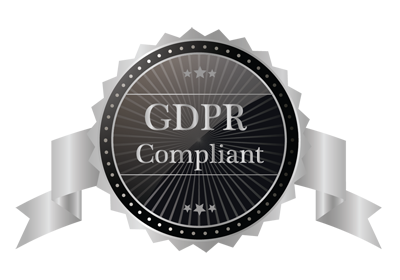Corporate espionage is a growing concern for UK organisations. Rivals and bad actors are constantly seeking ways to gain an unfair advantage. While digital threats often take centre stage, physical security in espionage prevention is just as critical, if not more so. A single security lapse can expose valuable trade secrets. This can be an unmonitored access point or an unattended document,
At Advanced Sweeping, we understand that safeguarding your business requires a multi-layered approach. Combining cutting-edge technology with strategic physical security measures helps prevent covert surveillance. Unchecked, it could lead to unauthorised access and data breaches.
What Threats Does Corporate Espionage Pose to UK Businesses?
Corporate espionage is the targeted theft of confidential information. This includes trade secrets and intellectual property. Unlike random cyberattacks, it’s deliberate and strategic. The impact can be severe:
- Loss of valuable intellectual property
- Weakened competitive edge
- Damage to reputation and trust
- Legal and regulatory issues
- Business disruptions
UK businesses lose millions each year to espionage. Threats can come from competitors, criminal groups, and even foreign governments.
How Do Physical Vulnerabilities Enable Corporate Espionage?
Strong cybersecurity isn’t enough if physical weaknesses leave your business exposed. Hidden listening devices, unauthorised access, misplaced documents, stolen credentials, and insiders removing data can all lead to corporate espionage. These risks make physical security a crucial part of protecting sensitive information.
What Physical Security Measures Effectively Counter Espionage Threats?
Strong physical security measures help prevent unauthorised access, surveillance, and data theft. These key strategies can keep sensitive information safe.
Technical Surveillance Countermeasures (TSCM)
TSCM, or business bug sweeping, is essential for protecting sensitive business information. These services detect and remove hidden surveillance devices that could compromise private discussions. A strong TSCM strategy includes regular office sweeps, pre-meeting checks, RF analysis to find active transmitters, and visual inspections for tampering.
However, don’t rely on DIY bug sweeping methods. Modern surveillance technology keeps advancing. This makes professional TSCM services essential. They offer protection that DIY methods cannot match. Regular sweeps by experts help prevent corporate espionage and keep your information secure.
Access Control Systems
Access control is key to physical security. It stops unauthorised people from accessing sensitive information. Strong systems limit access by using multi-factor authentication, visitor vetting, and zone-based restrictions.
Tracking entry events and managing credentials prevent misuse. These systems also create audit trails. This makes it easier to spot security breaches and improve protection.
Physical Document Controls
Many businesses still deal with sensitive paper documents. These need proper protection. Lock them in cabinets or safes and use classification systems to keep them secure. Also, don’t leave important documents in the open for anyone to find. Keep desks clear after hours.
Secure shredding and sign-out procedures prevent unauthorised access, copying, or theft. This reduces the risk of information leaks.
Perimeter Security
Strong perimeter security adds layers of protection to keep threats out. For example:
- Controlled entry
- CCTV monitoring
- Alarms
- Security staff
- Physical barriers
These measures work together to detect risks early and stop intruders from reaching sensitive areas.
Employee Awareness Training
Well-trained employees are a strong defense against security threats. They learn to spot social engineering and report anything suspicious. Emphasise handling confidential information correctly and following visitor procedures. Regular training reduces mistakes and builds a security-focused workplace. It makes corporate espionage harder to carry out.
What Role Do Insider Threats Play in Corporate Espionage?
Insider threats are one of the biggest risks in preventing corporate espionage. Employees with access to sensitive data may leak information for various reasons. This includes money, personal reasons, or outside pressure.
Reducing insider threats requires:
- Thorough background checks for employees handling sensitive data
- Limiting access to only what’s necessary
- Monitoring for unusual activity or access patterns
- Clear procedures when employees leave the company
- Restricting highly sensitive information to select individuals
These steps help to prevent insiders from misusing valuable data.
Why Should You Integrate Physical and Cyber Security?
Physical and cyber risks are often connected, so the best security plans protect both. This includes:
- Securing network hardware
- Safely disposing of electronic media
- Preventing device theft
- Controlling portable storage use
- Restricting access to workstations and servers
A combined approach strengthens your overall security. It makes it harder for espionage threats to succeed.
How Can TSCM Services Identify Hidden Vulnerabilities?
TSCM services help spot hidden threats. For instance, advanced surveillance devices and unauthorised network connections. They can also find suspicious structure changes, unexpected signals, and security weaknesses. Advanced Sweeping’s experts use the latest tools to detect hidden surveillance devices. This way, we prevent potential data breaches before they happen.
Protecting Your Business Against Corporate Espionage
Strong physical security is key to protecting your company’s sensitive data. You can lower the risk of espionage by combining TSCM with other security measures. This includes access control, document security, employee training, and cybersecurity.
The first step is to spot potential vulnerabilities before they’re exploited. Advanced Sweeping offers expert TSCM services tailored to your needs. Our team helps UK businesses implement effective security strategies to protect against espionage. Contact us today to learn how our TSCM services can protect your business from unauthorised surveillance.

